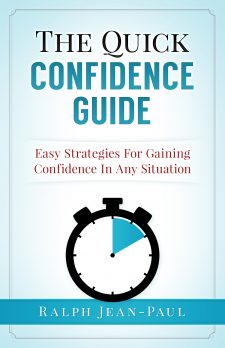|
Do you have a hobby that you love? I mean really love? Have you ever thought to yourself, “If only I could make money from doing this”. Well, there may be a way you can make money from your hobby. With research, planning, and work, it is possible to profit from just about any talent, hobby or passion. Turning talents into profits is just like starting your own business. Whether you are an artist, musician, or writer, you will need to develop, market, and sell what you have to offer. Essentially, you will be your own manufacturing, marketing, and sales department. This post is about taking something that you love to do; and making it profitable so that you can do it more often. If you do the work that you love, you never have to work a day in your life. |
|
Passion VS Profits We all have something that we are passionate about. Some of us are passionate about music and art. Others have a desire to help people or to help make the world a better place to live. Great! Having passion helps makes life exciting. But passion doesn’t pay the bills. You may be a great writer but when the power company sends you a bill, they want money. You can’t slip a 5000 word article in an envelope and mail it to them. We’ll, you could, but you will probably be writing by candlelight for a while. Instead, you would have to turn that article into currency. That is true for any type of talent or skill. The difference between a business and a hobby is the amount of money that is generated. It can be hard sometimes to focus on the profit if you are starting a business. Especially if you are doing something you love. Doing what you love everyday can be so enjoyable that we forgive ourselves for not making a profit. But that attitude is not sustainable and will eventually drive us out of business if we let it. At the same time, it is important to stay passionate about what you love. Turning your attention fully to making a profit can be a disaster. Thinking only about the money made can drive you to compromise quality and loyalty to your customers. It may also cause you to lose the love that you had when you started. The key is to find a balance between passion and profit. If you are completely engrossed in your passion then it may be a good idea to get a partner who can handle the accounting. That way, you can focus on creating the product while your accountant handles the finance. Business Urban Legends If you network with new entrepreneurs, you will eventually run into some business myths. I call them business urban legends. I have to admit that when I first began to monetize my passion, I believed some of these myths were true. I even repeated them because I heard someone else say them. Now that I have more experience, I realize that many of the people who spread these myths may have just been making excuses for their unsuccessful ventures. Myths about business spread faster than the flu. It is important to know what to believe and what not to believe. Here are a few of the more common business myths that you will come across. If you do what you love, the money will come-I think I’ve heard this one more than any other myth. It’s a nice thought but it’s just not true. There are many very talented writers and singers, who struggle to make a living while they are doing what they love. It is great to do what you want to make a living from it, at some point you will have to create a way to make it profitable. My talent/product/service is so good that it will sell itself-No matter what your talent is, you will need to market it in order for it to be successful. You could be a great singer but you will never land that multimillion dollar record deal if you only sing in the shower and in your car. You would need to do something so that people can hear you sing. You may need to perform at an open mic or get your demo into the hands of as many people as possible. If you build it they will come-Wouldn’t it be nice to be able to open a store, build a website, or design a product and then just sit back and watch the money roll in. In the real world, it takes much more than that. Failure is bad-Failure is an obstacle much like any other obstacle you will face. Instead of thinking of failure as the end of the road, consider it an opportunity to find another route to your destination. All I need is a good idea-Ideas are good but not enough. It takes work, strategy and funding to get any good idea off the ground. That is why most venture capitalist will not fund an idea. They usually require a track record, detailed business plan, and exceptional growth potential before they invest. Someone else has already done it so I can’t do it-One example where this is not true is with the Apple iPod. MP3 technology was patented in 1989. Many years before the iPod came around but not too many people took notice. Apple took an existing technology, gave it a clever name, made it easy to use by creating iTunes, and made it cool to own. Presto, billions of dollars in sales. It’s not about being first but finding a way to appeal to the market and creating a better product. |
Turning Passion into Profits
1. Do Your Research
It is important to know if people will pay for what you have to offer. Doing market research will let you know if there is a demand. You may have a talent for making picnic baskets out of old shoe laces but is anyone willing to pay for that? It is equally important to target and analyze your clientele so that you are not wasting money on advertising. Market research will also tell you who you should be marketing to.
2. Find your Unique Selling Point
Your USP is what differentiates you from your competition. There must be a reason why people would be willing to pay for what you have to offer instead of going somewhere else for it. We all have something unique about us. Try to find what makes you unique and use that to your advantage.
3. Evaluate Your Passion Objectively
Or better yet, have someone else do it for you. Even though you have a good idea for a business or you have a talent, you must know if it can be profitable enough to make a living. Look at your skill or passion and be honest with yourself to evaluate whether there is a money making opportunity.
When you evaluate yourself you will better understand what you may be able to accomplish. Host of the Food Network’s “Good Eats” Alton Brown once said that before someone can take a risk to go out on their own they must evaluate themselves. “It is important that you evaluate yourself” Brown says, “because you are about to become a product and it’s important to know what that product can do.”
4. Develop Your Talent
Talent is a marvelous thing to have but it is not enough. In the book ”Talent is Overrated: What really Separates World-Class Achievers From Everybody Else” Geoff Colvin writes about what extraordinary achievers do in order to be successful. He notes that-although talented-overachievers seem to practice and develop their talents more than the average person. He concludes the development of talent is the real reason some succeed while other don’t.
This idea is echoed in the book Talent is Never Enough by John C Maxwell. He puts a high value on talent but points out that talent and skill are two different things. If you have a talent that you would like to make profitable, begin developing it immediately!
5. Learn the Industry
Learn as much as you can about the industry that you are going into. If you are opening a retail shop, then you should learn all that you can about retail. You should begin to build relationships with manufactures as well as distributors.
You may also want to begin to associate with other people in your line of business. Surround yourself with people who are where you want to be. Begin to think about the business the same way they do. Once you understand the business space that you are in, find a way to be better than everyone else that is doing it.
6. Understand Your Cost
You may be making $10,000 per month but if it’s costing you $9,500 to operate, you’re not doing very well. Figure all of your cost-including your salary-for the business so that you can gauge how profitable it really is. Understanding your cost also means understanding how valuable your time, energy, and talent are.
Note: Your U.S.P will also help you determine how much you are really worth.
7. Spread the Word
Get the word out about your passion. If you think your talent or skill is worth something, the world should know about it. Build a website, start a blog, and begin marketing yourself. If you are a performer, get in front of as many people as possible. No one will know about your talents unless you tell them.
8. Stick With it
Sometimes success is right around the corner. Just because you didn’t make money in the first 3 months doesn’t mean you should quit. Most businesses take a little time before they are profitable.

 Subscribe for free today and get a FREE copy of my ebook The Path 2 Success. Begin your path today!
Subscribe for free today and get a FREE copy of my ebook The Path 2 Success. Begin your path today!










